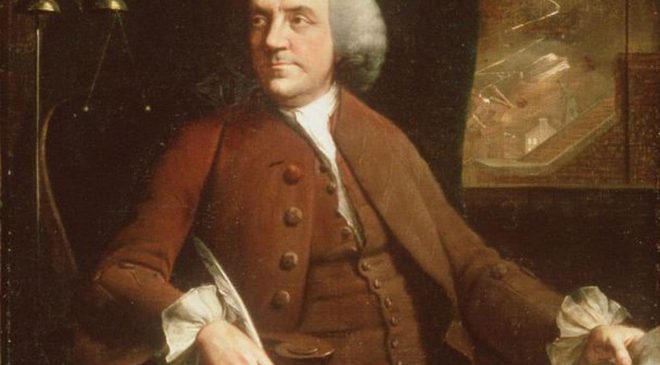“What’s the libertarian solution to social or economic problem X? How about problem Y or Z?”
No libertarian needs to wait long before hearing such questions. But strictly speaking, the libertarian philosophy offers no solutions to specific problems. That’s not what it does. It is not itself a solution. Rather, it describes an institutional environment in which imaginative people are free and motivated to discover innovative solutions to individual and collective problems.
That environment has moral, cultural, economic, and legal dimensions, all grounded in self-ownership, respect for others, property, competition, persuasion, and consent, as opposed to government authority, monopoly, decree, and coercion. The cultural dimension is especially important, though often unappreciated. Widespread resentment toward other people’s success, for example, is literally deadly, not only for those targeted but for society at large, especially those at the bottom.
Thus when a libertarian says freedom or the free market will solve a particular problem (if politicians stand aside), what sounds like an impossibly oversimplified response is actually highly complex. In contrast to the politicians’ boasts, note the humility here. Confidence in market problem-solving is confidence in free human imagination dispersed among countless individuals throughout society. Who can say who will come up with the solution? No one. That in part is why we need everyone to be free.
The unique grounding of the libertarian environment has far different built-in incentives for problem-solvers than any state-based alternative. State problem-solving is characterized by centralized bureaucracy, artificial knowledge constraints, nonconsensual financing (taxation) that precludes feedback, profligacy (producing the disruptive knowledge distortions of debt and inflation), and significant unaccountability. In contrast, social- or market-based problem-solving is characterized by multiple knowledge centers, competition, consensual financing, and the profit motive. In that environment proposed solutions are subjected to intellectual and product competition, which yields better knowledge than other arrangements. F. A. Hayek called competition a “discovery” process. I think of it as the universal solvent.
In the market, problems are potential profit opportunities for entrepreneurs, and as we know, the profit motive is potent. The entrepreneur’s job is to figure out where and how resources are used suboptimally relative to what people (not politicians) want most. Solving a problem often requires shifting scarce resources and labor from one purpose to another.
How can anyone know what’s the best way to go? Entrepreneurs find clues to that question in market prices, which is why the price system is so important and must not be tampered with by politicians and bureaucrats. If an entrepreneur is correct when thinks he can buy a quantity of resources and hire labor at one price per finished-product unit and make something people will want to buy at a sufficiently higher price, he will earn a profit. That’s a sign the enterprise solved a problem for its customers. Profit in the free market (absent government intervention) is a reward for success. It’s not a dirty word.
Indispensable to the entrepreneurial function is the consumers’ freedom to accept or reject offers as they see fit. Both responses communicate vital information to the problem-solvers. Coercion, the government’s way of doing things, sabotages the function.
The freedom-based process is vital in our world of scarcity, trade-offs, and imperfect knowledge. Improvement is always possible, and imperfect knowledge is not the only reason. Another is that people’s preferences change. What they wanted yesterday they may not want tomorrow, especially if something new comes along. A third reason is that the array of resources changes, with new materials, technologies, and organization methods proving superior to the old. Government restraints on this process do a disservice to people trying to improve their lives, especially those who have yet to “make it.”
In contrast to entrepreneurs, politicians and bureaucrats can’t look for price discrepancies (since government “services” are not priced in the market) and wouldn’t profit from them in any event. Government officials instead respond to constituencies (relatively small well-connected interests generally) who lobby for “free,” that is, tax-financed, stuff. Since most of the benefits bestowed by the government are concentrated on relatively small interest groups with much riding on their single purpose, while the costs are dispersed among the mass of unorganized taxpayers and consumers without a single purpose, the interest groups usually prevail. (Think of quotas and tariffs on imports. A few domestic producers are usually able to dominate a much larger group of consumers.)
Moreover, when politicians and bureaucrats promise to solve a problem and fail, they rarely suffer any consequences since they are able to blame the private sector. (Inflation is blamed on greedy businesses, not on the real culprit: government borrowing that is monetized is by the Federal Reserve.) Spotting that misdirection requires one to engage in the economic way of thinking, but most of the public has no idea what that means. (Frédéric Bastiat in the 19th century illustrated this in “That Which Is Seen, and That Which Is Unseen.”) This political trick works so well that government officials can easily turn failure into bigger budgets and more power. The game is rigged against the people, who pay twice: through the tax system and by having to forgo real the solutions that entrepreneurs would have discovered had the government kept its hands off the resources.
Nothing better indicates the superiority of market solutions to state solutions than the fact that market solutions will vary according to local knowledge and preferences. In contrast, state solutions tend to be one-size-fits-all.
No one has ever suggested that the libertarian environment for solving problems is perfect. People aren’t infallible, so the private consent-based approach can’t be either. Trial-and-error is inescapable but also indispensable. Yet the last time I checked, politicians and bureaucrats were people too. (No, really!) The difference is that people are operationally smarter in a free, decentralized, and competitive environment where they encounter feedback and face the clear consequences of their choices. That’s exactly what is lacking in the political environment.
One final note. In a world of scarcity (however much technology loosens its limits), solving problems always entails costs. As Thomas Sowell teaches, in a sense, there are no solutions, only trade-offs. What we all strive for in life is an overall improvement; in effect we exchange situations we don’t want (all things considered) for ones we do want. That’s the natural condition, which politicians and bureaucrats cannot improve on. But as we can readily see, they certainly can make things much worse.




